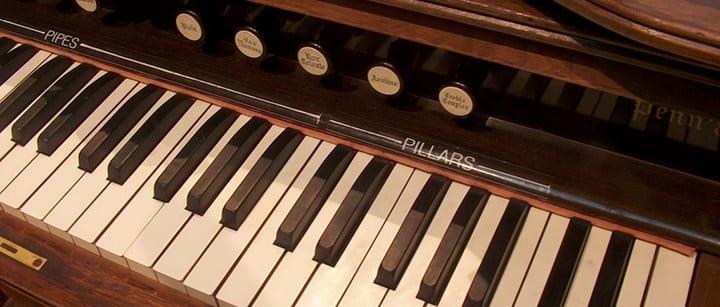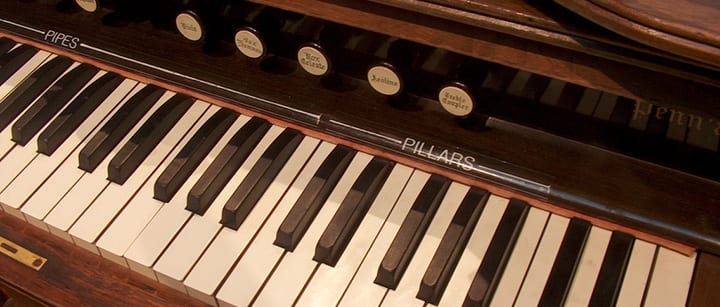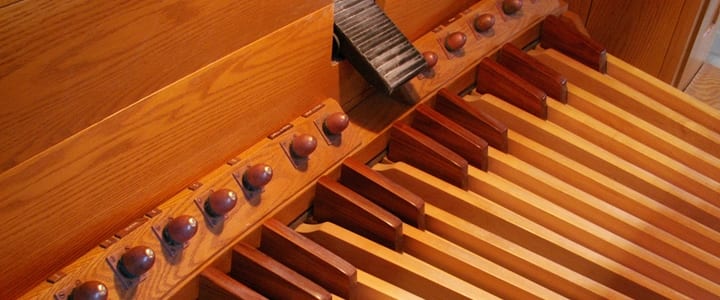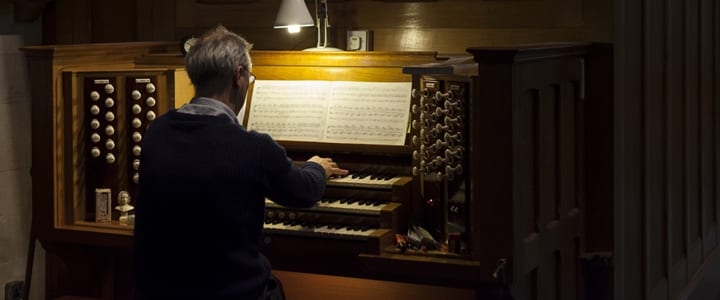There are many reasons why a music student may find themselves learning to play piano on a keyboard rather than on a baby grand: cost, space, or simply lack of access, for example. Versatility on a range of keyboard instruments is also an extremely useful string for any pianist to have to their bow, and can lead to greater practice and public performance opportunities, and even excellent opportunities to earn a little money on the side.
The organ, although not the most prevalent or popular musical instrument, is a great option for pianists looking to expand their skills. Here are three reasons why you should consider learning this fascinating set of keys:
1) The Techniques are Different
Many piano players make the assumption that their skills on one keyboard will transfer directly to another, and that they will be able to play the organ with the same level of skill instantly. However, this is a dangerous assumption to make, especially if you are engaged to play the organ somewhere, and haven’t honed your skills already. Whereas the touch on the piano is all about the attack, the organ is all about the release, so using the same weight on the keys will not necessarily produce the desired outcome. This is where students who have been learning to play piano on a keyboard will have a small advantage — unless you’re using an expensive clavinova with weighted keys, an electronic keyboard will require a similar attack-and-release technique as an organ.
2) Pedals and Keyboards and Stops, Oh My!
If you’ve played the organ, you probably have vivid memories of the first time you were faced with a model with dual keyboards, pedals, and stops! It was probably pretty terrifying. Remember all those hours you spent making your hands properly independent and equally agile on the piano keyboard? You’ll have to develop an entirely new technique for the organ, where you will be negotiating stops and a dual keyboard at the same time. Also, your piano has a measly three pedals at most, so your footwork will have to become extra-fancy to negotiate the organ pedals.
It’s worth finding specific exercises to help coordinate your hands and feet to ensure that you can transfer your dexterity at the piano to the organ. Again, if you have been learning to play piano on a keyboard, you will find yourself at an advantage, as you may have had to manipulate buttons to get different effects. As for those stops, it’s worth familiarizing yourself with the sound and function of each before you play, so that you can become fluent quickly.
3) There’s a Whole New World of Playing Opportunities Out There
While you may have found the odd source of extra money playing the piano at a restaurant, or perhaps giving an occasional piano lesson to a beginner, even if you don’t plan on a career as a professional musician, being able to play the organ will open up a whole new sphere of music jobs to you. Many older churches have large manual organs, and although most will have a regular organist, it’s worth introducing yourself as someone that they can call on when needed. Even smaller churches typically need a keyboard player of some kind, so you may find occasional opportunities to perform.
Church organ music isn’t the only source of extra repertoire, however — just as there are significant orchestral piano opportunities, the organ is often required, too. This includes not just for works such as Saint-Saëns’ Organ Symphony (which also has a spectacular piano part!), but many choral works, including Walton’s Belshazzar’s Feast, and the most common favorite of choral societies worldwide, Handel’s Messiah.
While the organ does have some similarities to the piano, keep in mind there are several separate skills involved. If playing the organ interests you, it may be worth finding a private teacher who specializes in the instrument once you’ve learned the basics of the piano. Working with an expert who can guide you along and teach you the correct techniques is a big part of your success as a musician. Whatever instrument you choose to learn — have fun!
Photo by Harry Vale, rosefirerising, kennysarmy
Suzy S.




